HELENA, Mont., Dec. 21, 2018 /PRNewswire/ — NASPO ValuePoint is announcing the Medicaid Management Information System (MMIS) – Provider Services Module nationwide contract. This contract offers a Provider Services module that is part of the overall initiative for individual states to replace aging legacy components of their Medicaid enterprise. The Provider Services module procurement is a multi-state cooperative procurement initiative through NASPO ValuePoint that provides an alternative to a long and complex solicitation process at the State level. Awarded vendors offer some of the best solutions for Provider Services available in the market today. The cooperative procurement process was also a boon to interested vendors as the CMS approved Master Agreements allow the six qualified contractors to market their product and negotiate Participating Addendums with individual participating states.
“The NASPO ValuePoint Provider Services procurement is a true innovation for the acquisition of Medicaid modular system components,” said Gene Hermanson, Medicaid Systems Operations Manager, Montana Department of Public Health and Human Services. “This initiative was the result of a multi-state collaboration between six states to procure federally compliant Provider Services solutions to meet state specific needs. In addition to reduced procurement timelines, we expect many states to benefit from the proposed solutions that support key principles of modularity such as the acquisition of loosely coupled modules with open, documented interface and discrete, scalable, reusable components that are interoperable within the modular enterprise.”
Key benefits of new agreements:
- This contract offers Master Agreements for Provider Services Modules for State’s Medicaid Management Information Systems.
- This contract allows agreements that are available to state governments, the District of Columbia and territories of the United States, and government subdivisions (potentially cities or counties in need of the Provider Services Module).
- Other Benefits of the Solicitation and Agreements:
- The RFP and all Master Agreements have been approved by CMS
- Predefined costs for participating states
- Six qualified and pre-approved Provider Services solutions
- Each state shall determine the best fit and best value to meet their business needs
- Comprehensive terms and conditions are included in all Master Agreements
- Robust Performance Standards are included in all agreements
- The RFP included comprehensive requirements to meet Provider Services needs
- MECT checklist items are mapped to requirements to support CMS certification
- Federally compliant and configurable solutions and agreements to address state specific laws and policies
- Prepared considerations for states executing a Participating Addendum
- Other benefits to be gained by State Medicaid agencies through NASPO ValuePoint multi-state cooperative procurement:
- Greater vendor participation
- Reduced procurement costs
- Expedited procurement timelines
- Increased procurement flexibility
4. Expanded functionality through comprehensive multi-state requirements
Evaluation and Awarded Providers
This solicitation was opened on August 24, 2017, and closed on November 16, 2017. Nine proposals were received, with two of the original proposals being found non-responsive and eliminated from further consideration. The evaluation committee met in Portland, Oregon, the week of January 8-12, 2018, and reviewed the remaining seven proposals in Phase I – Technical Proposals. Six offerors qualified to move out of Phase I and moved on to Phase 2 – Product Demonstrations. The Phase 2 meetings were held in Portland the week of January 29 – February 2, 2018. At the end of Phase 2, all six offerors were qualified to receive a Master Agreement.
“MAXIMUS is pleased to be an approved Provider Services vendor in this cooperative procurement initiative to support the Medicaid program modernization for Montana and other participating states,” said Bruce Caswell, President and Chief Executive Officer at MAXIMUS. “Having earned CMS modular certification for our Provider Services system, we are committed to delivering high quality provider management services and self-service capabilities to our state clients, their medical providers and Medicaid beneficiaries.”
Awarded Vendors:
Client Network Services, Inc.
DXC Technology
Digital Harbor Inc.
HHS Technology Group LLC
Maximus Human Services, Inc.
OptumInsight Inc.
“CNSI is thrilled to be part of this unique and groundbreaking group,” said Sharif Hussein, Chief Strategy Officer and President of Health and Human Services at CNSI. “Health IT, at its core, is about improving care and decreasing costs. When we can work with government to streamline the procurement process and share systems across state lines, solutions are delivered more quickly and cost efficiently. Taxpayers and patients both win.”
How to Act
States are required to sign a NASPO ValuePoint Participating Addendum to purchase from a NASPO ValuePoint Master Agreement. Find out if your state’s purchasing office has signed to participate here or contact us on how to fast track this opportunity via email at info@naspovaluepoint.org. Pricing details are in the Master Agreement listed on the contract portfolio page and vary depending on the provider and services. View current FAQs for this contract portfolio, including terms and conditions, for more details.
To learn more about these exceptional values of services, how you can participate, or to ask questions about these contracts, please contact NASPO ValuePoint at info@naspovaluepoint.org.
NASPO ValuePoint Mission
As states working together, we develop and manage public cooperative contracts. Through our purchasing power, we deliver best value for price, quality, and flexibility on terms acceptable to each individual state.
About NASPO ValuePoint
NASPO ValuePoint is a unified, nationally focused cooperative aggregating the demand of all 50 states, the District of Columbia and the organized US territories, their political subdivisions and other eligible entities spurring best value, innovation and competition in the marketplace. The NASPO ValuePoint Cooperative Purchasing Organization (formerly WSCA-NASPO) provides the highest standard of excellence in public cooperative contracting. By leveraging the leadership and expertise of all states with the purchasing power of their public entities, NASPO ValuePoint delivers best value, reliable, competitively sourced contracts. Since 1992 NASPO ValuePoint has been the cooperative purchasing arm of NASPO (the National Association of State Procurement Officials) encouraging, fostering and guiding the nation’s most significant public contract cooperative.
For more information on this release, contact:
Amanda Graves
(859) 514-9824
agraves@naspovaluepoint.org
SOURCE NASPO ValuePoint | Read Original Post Here


 Last week, Todd held an introductory all-employee town hall in which he introduced CNSI to his vision for the company as he becomes its new steward. He described working with employees up and down the corporate ladder to deeply understand CNSI’s culture and operations. When asked by one of the employees what Todd’s vision is for evolving CNSI’s culture, his response was not only strategic but heartfelt.
Last week, Todd held an introductory all-employee town hall in which he introduced CNSI to his vision for the company as he becomes its new steward. He described working with employees up and down the corporate ladder to deeply understand CNSI’s culture and operations. When asked by one of the employees what Todd’s vision is for evolving CNSI’s culture, his response was not only strategic but heartfelt. 
 Stottlemyer, a former executive with the Inova Health System, was previously responsible for the development and growth of all activities on the Inova Center for Personalized Health campus in Virginia. Recognized by the Washington Business Journal and Virginia Business Magazine for his longtime industry and community leadership, Stottlemyer is a highly regarded technology and health care executive. Prior to his role at Inova, Stottlemyer served as CEO of Acentia, LLC, a technology and management solutions company with a large portfolio of health clients.
Stottlemyer, a former executive with the Inova Health System, was previously responsible for the development and growth of all activities on the Inova Center for Personalized Health campus in Virginia. Recognized by the Washington Business Journal and Virginia Business Magazine for his longtime industry and community leadership, Stottlemyer is a highly regarded technology and health care executive. Prior to his role at Inova, Stottlemyer served as CEO of Acentia, LLC, a technology and management solutions company with a large portfolio of health clients. In the opening keynote session for the annual
In the opening keynote session for the annual  “CMS is committed to providing more treatment options for serious mental illness (SMI), including more inpatient and residential options. However, states must also demonstrate their ability to address challenges—such as effectively fighting the raging opioid epidemic,” said Mr. Azar in his opening remarks.
“CMS is committed to providing more treatment options for serious mental illness (SMI), including more inpatient and residential options. However, states must also demonstrate their ability to address challenges—such as effectively fighting the raging opioid epidemic,” said Mr. Azar in his opening remarks.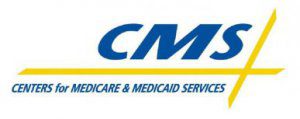
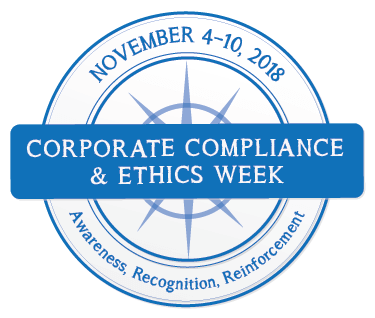 The U.S. just recently went through the
The U.S. just recently went through the 
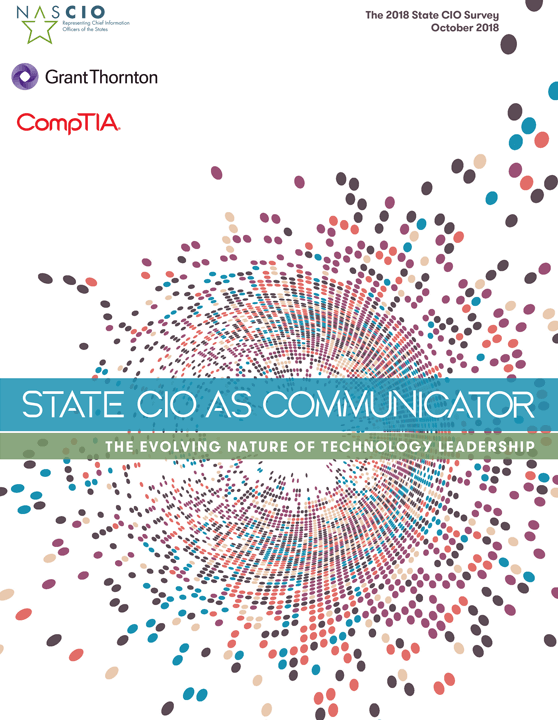 Every year, the
Every year, the 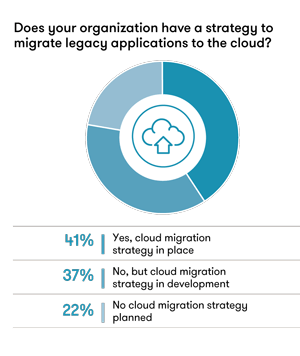 work involved than we anticipated.” As technology advances, states without a cloud strategy are missing out on significant savings, increased security, and other advantages.
work involved than we anticipated.” As technology advances, states without a cloud strategy are missing out on significant savings, increased security, and other advantages.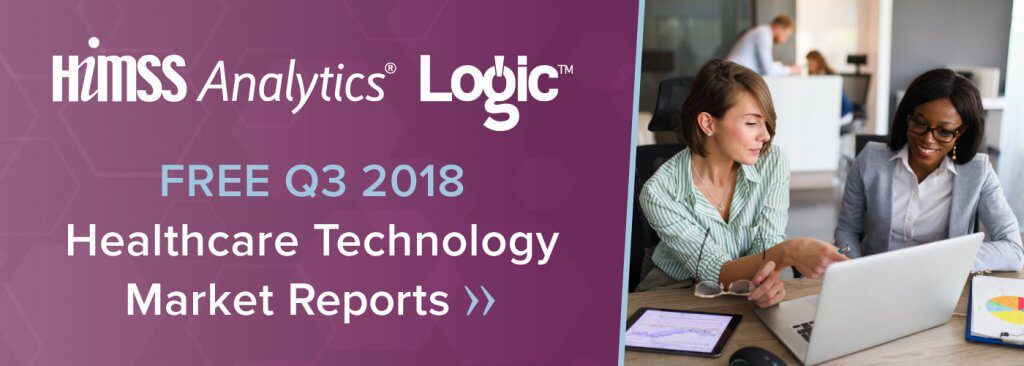
 The opioid crisis has affected millions of people worldwide. According to the
The opioid crisis has affected millions of people worldwide. According to the